In my last post I mentioned that I have been following Brain Pickings a lot lately. I’m especially drawn to all the great visuals in her posts. I also like her focus on curation and her book lists. In that same post, I also mentioned that while I enjoy reading and engaging with the site, something is just a little off about it. I’ve been thinking about it more, and I’ve realized one reason why: She really really likes TED. I don’t. Thinking about how much I don’t like TED gave me an inspiration for a new social/online media project (details TBA). Her love of TED, with its business self-helpy tone and its pedagogical model that idolizes Experts-who-enlighten, influences the overall tone of the blog. For a number of reasons, which I’ll leave for another post or a series of posts, I don’t like business self-helpy shtuff and my vision of pedagogy comes into conflict with the Expert-as-awesome model.
Recognizing what is off about this site doesn’t make me want to stop reading it or to reject it altogether; I still find lots of value in her curation and am very impressed with what she has developed and maintains (and without ads! that’s pretty sweet!). Instead, it simply helps me to understand my own troubling sense of unease when I read certain posts and learn about others’ projects via her site–like the one I want to write about today: Skillshare and their video, The Future Belongs to the Curious: A Manifesto for Curiosity.
The Future Belongs to the Curious from Skillshare on Vimeo.
Taken at face value, this video manifesto seems awesome. Valuing curiosity as the future. Encouraging the asking of lots of questions. Promoting life long learning. Yes! However, the video bothers me…and the more I watch and thinking critically about it, the more bothered I get. From the hyper-masculine voiceover to the heteronormative male POV throughout the video (we literally view the film through the eyes of a growing boy), I don’t see any space for my own vision of feminist curiosity–or even my own practicing of curiosity as a girl/woman. I also don’t any space for a whole lot of folks, that is, anyone not fitting the mythical norm of white, male, middle-class, etc!
The representation of women and the imagining of them in the past/present/future of who “we” are (of course the “we” = the universal white Male subject) as curious beings is as follows:
1. loving/caring Mom (twice: when boy is born and when boy breaks his leg) who doesn’t ask questions, just encourages others
2. teenage girl sitting in corner, passively listening to music while “we” play/experiment with guitar in a band
3. teenage girl in closet, looking shy/coy and puckering up as “we” move in to kiss her (hello male gaze!). I should mention that it was this image that first made me stop, question and rethink this whole manifesto. I find this to be a really problematic image–is it possible to read a counter-narrative into it? While it seems to imply that she is being kissed by a boy, could we imagine it otherwise?
4. the back of a girl’s head in Driver’s Ed as “we” playfully throw a paper airplane at her
5. smiling woman who seems to be dancing (but not questioning or being curious herself) just for us and for our camera
6. pregnant woman who is fixing up the nursery, presumably for our child
Maybe I missed it, but I didn’t see any girls/women asking questions and being curious. I didn’t see any girls/women having any agency in this heteronormative narrative at all. The only purpose that any of these women seem to serve is to further the narrative of the male thinking, acting, playing, kissing, filming, experimenting, networking, questioning, working self. Speaking of heteronormativity, the vision of the curious future is not that innovative, interesting or curious. Instead, it’s the standard normative model of future = grow up + marry + have kids. For some (myself included) that’s a nice future/present, but it’s not the only one that we should imagine and represent. If we’re truly being curious, why not be imaginative about how we represent the future. Why not include a wider range of folks in our visions of what it could be?
For Cynthia Enloe, in The Curious Feminist, curiosity is about taking the lives of women (I want to expand it to state: not just women, but a wider range of folks) seriously: being open to other stories, listening deeply to the experiences of those beyond ourselves, using our imagination to create spaces where they are agents who have curiosity and can imagine their own better futures.
Wow, this video really got me going. One final bothering thought: In light of all of the attention being given recently to the lack of girls/women in science and math (where successful, “productive” curiosity usually happens) and the need to value and encourage girls in these fields, why would Skillshare develop a manifesto that reinforces the idea that only boys/men are curious and that girls/women are only object and props to men’s practices of curiosity?
OH BOTHER! I might just need to create my own manifesto for feminist curiosity!

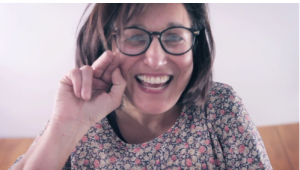
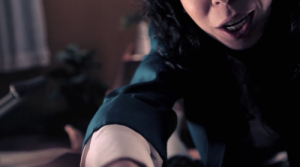
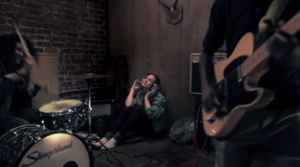

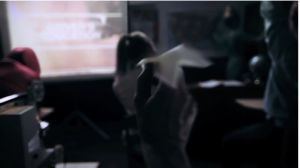
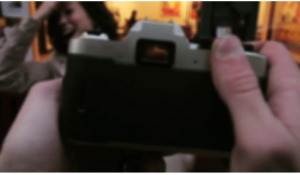
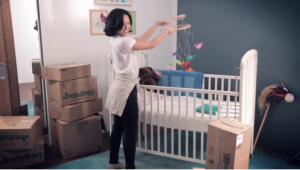
Comments are closed.